At the start of each year, we conduct an industry-wide survey on year-over-year recruitment, hiring and retention changes and trends. Employers, including executives, HR professionals and top-line managers, from across the commercial real estate industry share their company experience and perspectives on the previous year and on the year to come. We then compile the responses to provide a comprehensive report along with insights on the real estate job market as a resource to you and your business.
A majority of commercial real estate firms expect to grow faster this year than in 2021, continuing the competitive talent market and pushing average compensation higher, according to a new Bisnow/SelectLeaders survey.
The survey, which polled 130 hiring managers and HR executives in the commercial real estate industry in January, found hiring and job prospects in the industry have been much less impacted than worst-case pandemic-era scenarios may have predicted. “We’re seeing a lot of activity at a lot of firms, who are making strategic hires and responding to their portfolio needs,” said Kaitlin Kincaid, a senior managing director at real estate recruiting firm Keller Augusta. “They’re making hires they’ve put on hold for 18 months. People aren’t quitting their job to do nothing, there’s just a backlog of normal career progression.” In terms of jobs, compensation, even additional benefits, 2022 is likely to build on a strong 2021, according to survey respondents. More than half of firms expect to hire more this year, with roughly 38% expecting the same numbers as 2021, a similar breakdown as the previous year. When asked if they hired more in 2021 than 2020, 54.6% said yes, with 23.1% noting it stayed consistent.
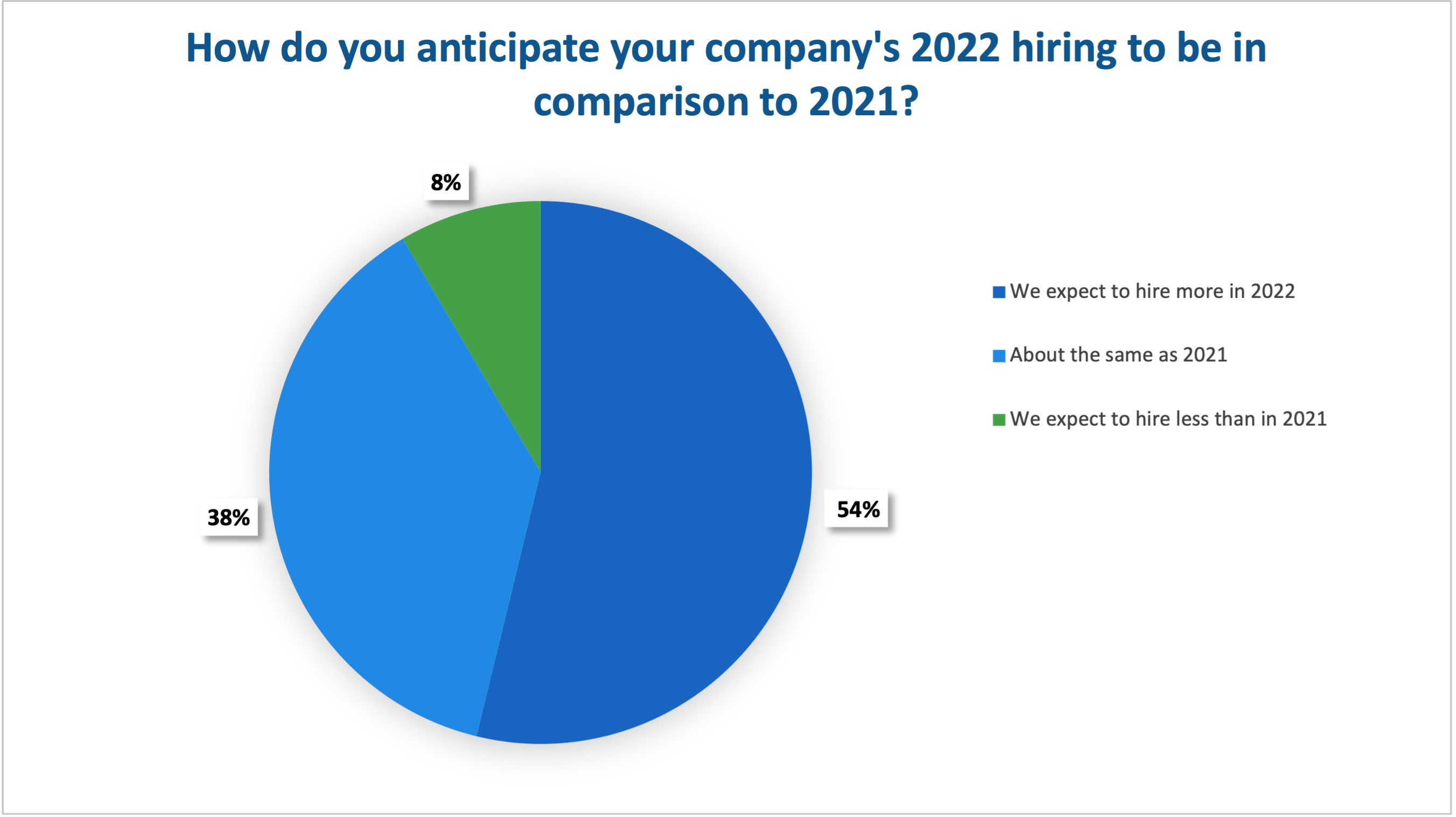
Bisnow acquired the SelectLeaders job board in late 2019, launching an executive search business in 2021 to meet the industry’s demand. Late last year, CEL & Associates' closely read salary data and commercial real estate compensation report projected
78% of real estate firms would increase headcount in 2022. The optimism may be “a lot of boardroom talk,” said workplace consultant Liz Burow, who said that top execs may be in the mindset that “the pandemic is over and we should plan for growth and the world opening up." But hiring patterns and volume suggest the market is accelerating, Kincaid said. She’s seeing companies make geographic shifts, which requires bulking up talent in burgeoning regions, and dip their toes into new-to-them business lines, including red-hot sectors like industrial, life sciences and multifamily. More companies are looking for many of the same roles — anybody with asset management, development and capital-raising skills will see headhunters coming — at the same time, shrinking the existing talent pool. “We had a successful year, and all indications are that it’ll be busy if not busier in 2022,” Kincaid said. While the
Great Resignation, which has seen
record numbers of workers quit their jobs in recent months, has had a significant impact, the survey finds that, as far as CRE goes, it may be somewhat overblown. When asked how their firm has experienced the Great Resignation, 42% said not at all, with 36% saying they experienced some attrition, but not more than during 2020.
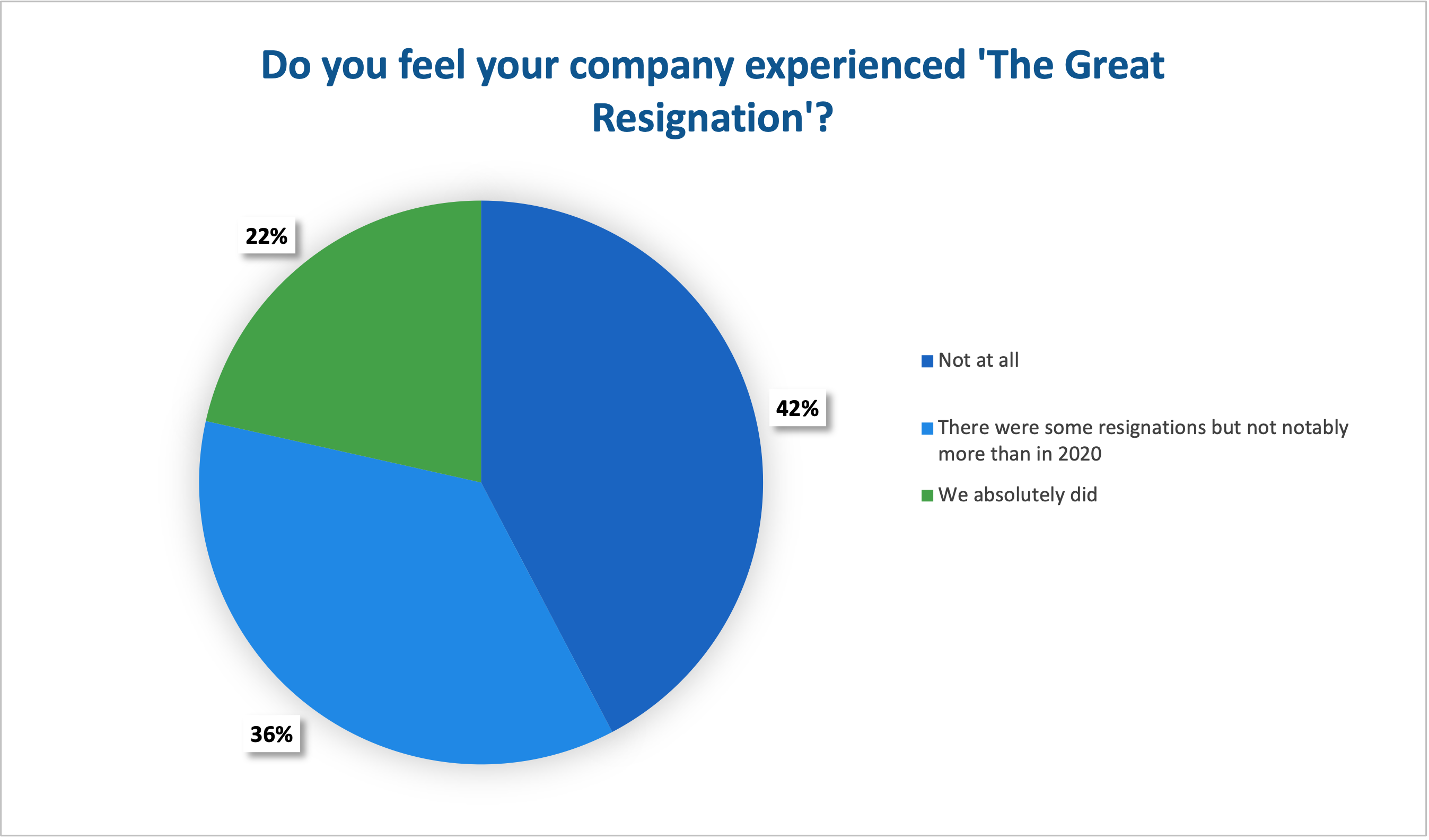
CRE Recruiting Principal Allison Weiss said firms she has been working with have been better, from a retention standpoint, than the media would have you believe. New hires and new talent is where companies are struggling. Survey participants felt the same way, with nearly 70% saying that a competitive market would drive their compensation structure for 2022.
“My view of the market is, I’ve had more people reach out to me because they can’t fill positions on their own,” Weiss said. “There’s a great disparity between folks who apply versus who they want to hire; firms look for someone with 10 to 15 years, and end up with someone with three to seven years. Recruiting is an active exercise. We’re working to lift the heads of people happy with where they are.”
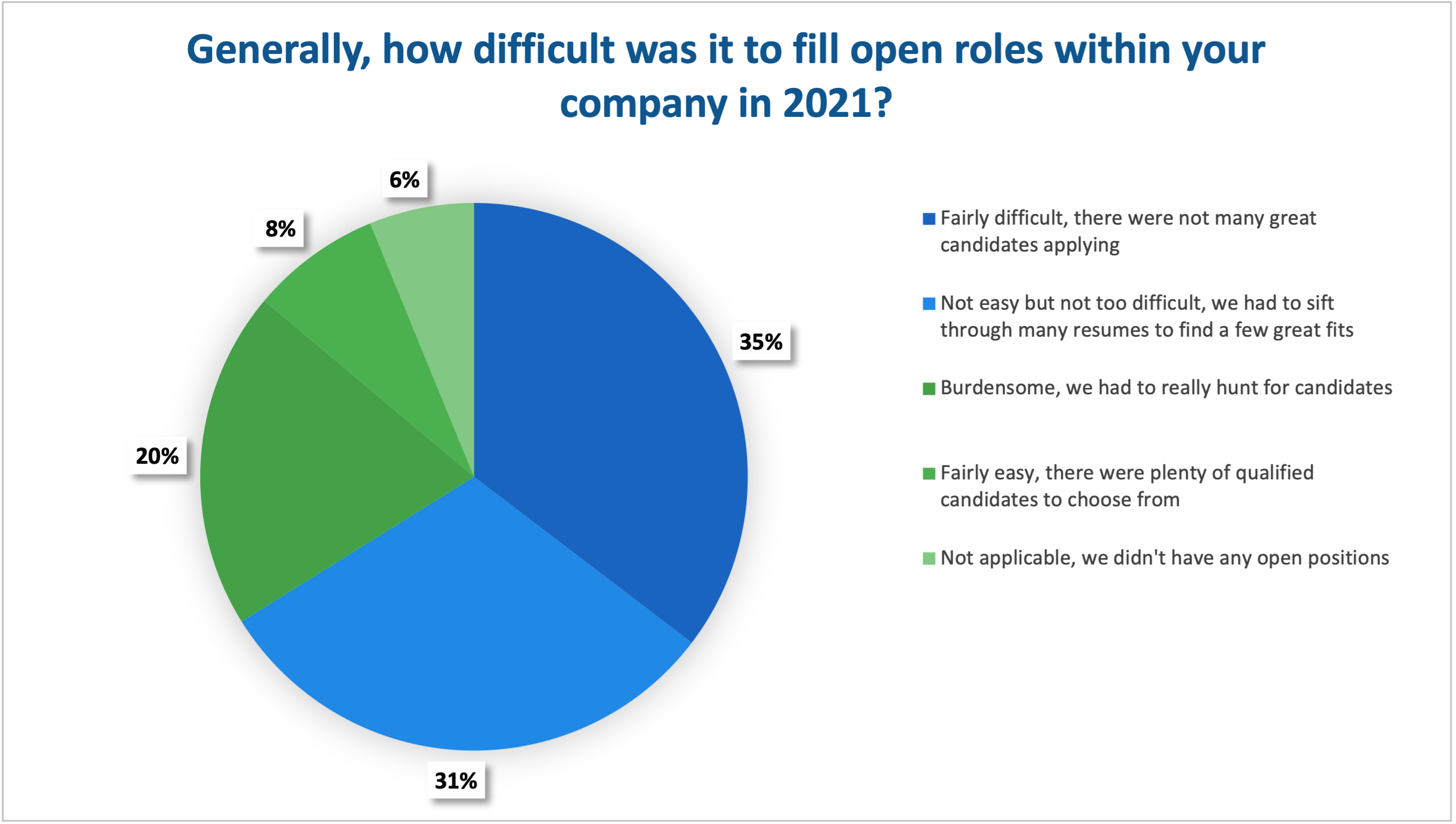
Her experience paralleled that of survey respondents: 35% said finding the right candidate was “fairly difficult,” with roughly 31% saying it wasn’t too hard or difficult, and 20% describing the process of hunting for candidates as “burdensome.”
“There is a growing talent shortage within the real estate industry that is resulting in significant changes to compensation and compensation programs,” CEL & Associates CEO Christopher Lee said. “There is a growing challenge to pay for new hires without disrupting the compensation of existing employees/high performers.”
 Courtesy of Keller Augusta
Courtesy of Keller AugustaKeller Augusta Senior Managing Director Kaitlin Kincaid
“Maybe [the Great Resignation] just didn’t hit the real estate industry,” Burow said. “There is some breaking point. Some feel it isn’t worth it, others feel the company doesn’t value the struggle they’re going through, or they simply made enough money and have the support to quit their job. How much do you get paid, and how emotionally painful was your job during Covid?” Winning the increasingly difficult talent search means investing in talent, benefits and new policies. The ability to work hybrid schedules has been seen by many as a necessity, even in real estate, Kincaid said. About 65% of survey respondents said they have a hybrid office schedule, versus 25% who are fully in office and 9% who are completely remote. In addition, 58.5% said they would offer remote work opportunities as an incentive to new candidates.
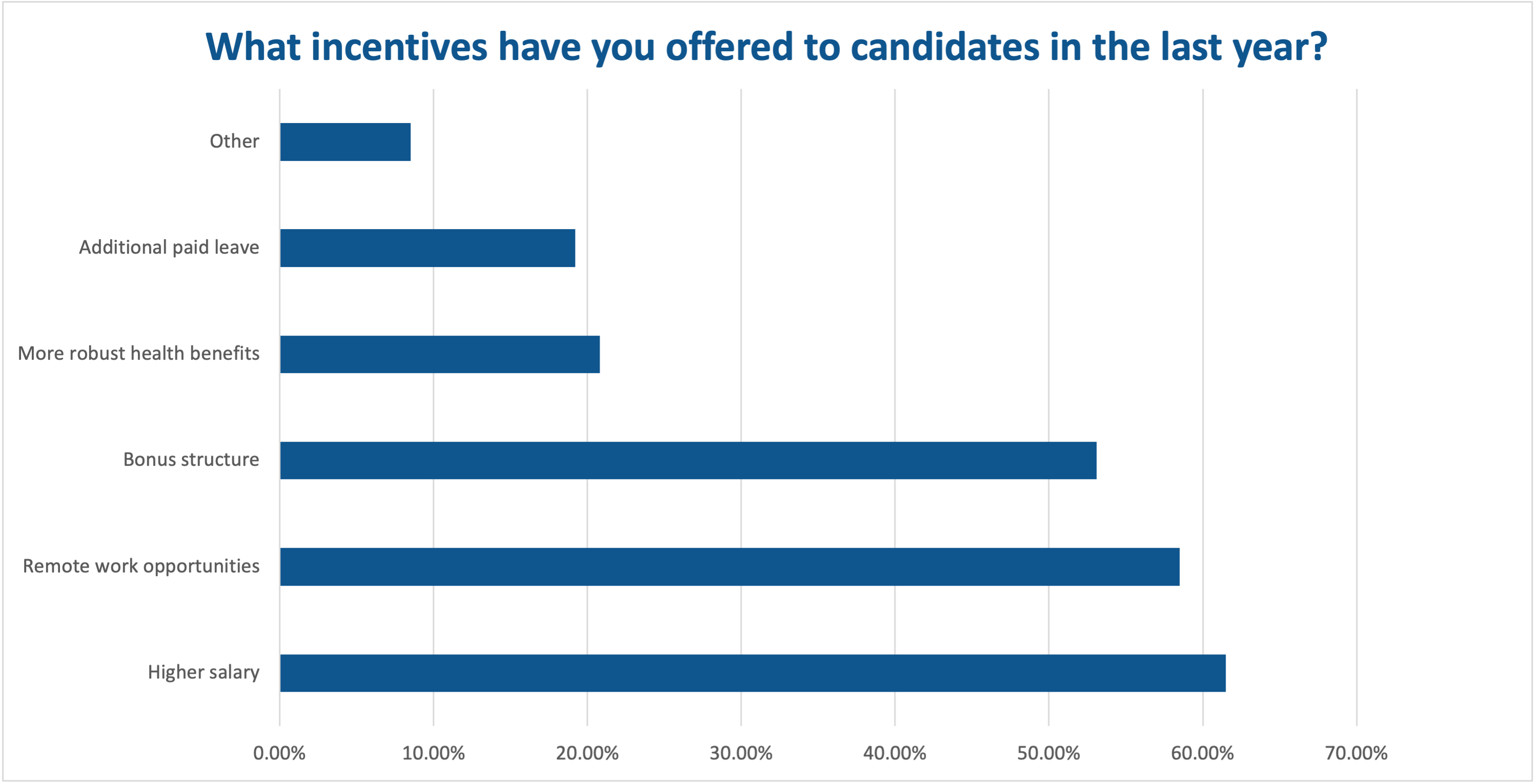
“I’d say the hybrid model is appealing to candidates,” Kincaid said. “Companies that have called people back for five days a week have a lot of people looking for jobs.” But despite a lot of talk about new benefits, the most popular new incentives have been financial. When asked which of a number of options were popular incentives with new hires, 61.5% said higher salaries and 53.1% said new bonus structures, versus more robust health benefits (20.8%) or additional paid leave (19.2%). “The money piece is important,” Weiss said. “Many companies are stepping up, and if you can’t compete, you might not be considered.” While higher salaries are key, they are not the entire game. For one, offering more to new hires means creating a retention risk if salaries aren’t raised across the board, a potentially dangerous situation in today’s talent market. And new hires tend to also want to see growth opportunities, mentorship, a path for advancement at the job and a sense of engagement with their new company. “I see and hear this from candidates all the time,” Weiss said. “Things related to career growth and professional development are big. People leave in pursuit of the road map and resources they want.”
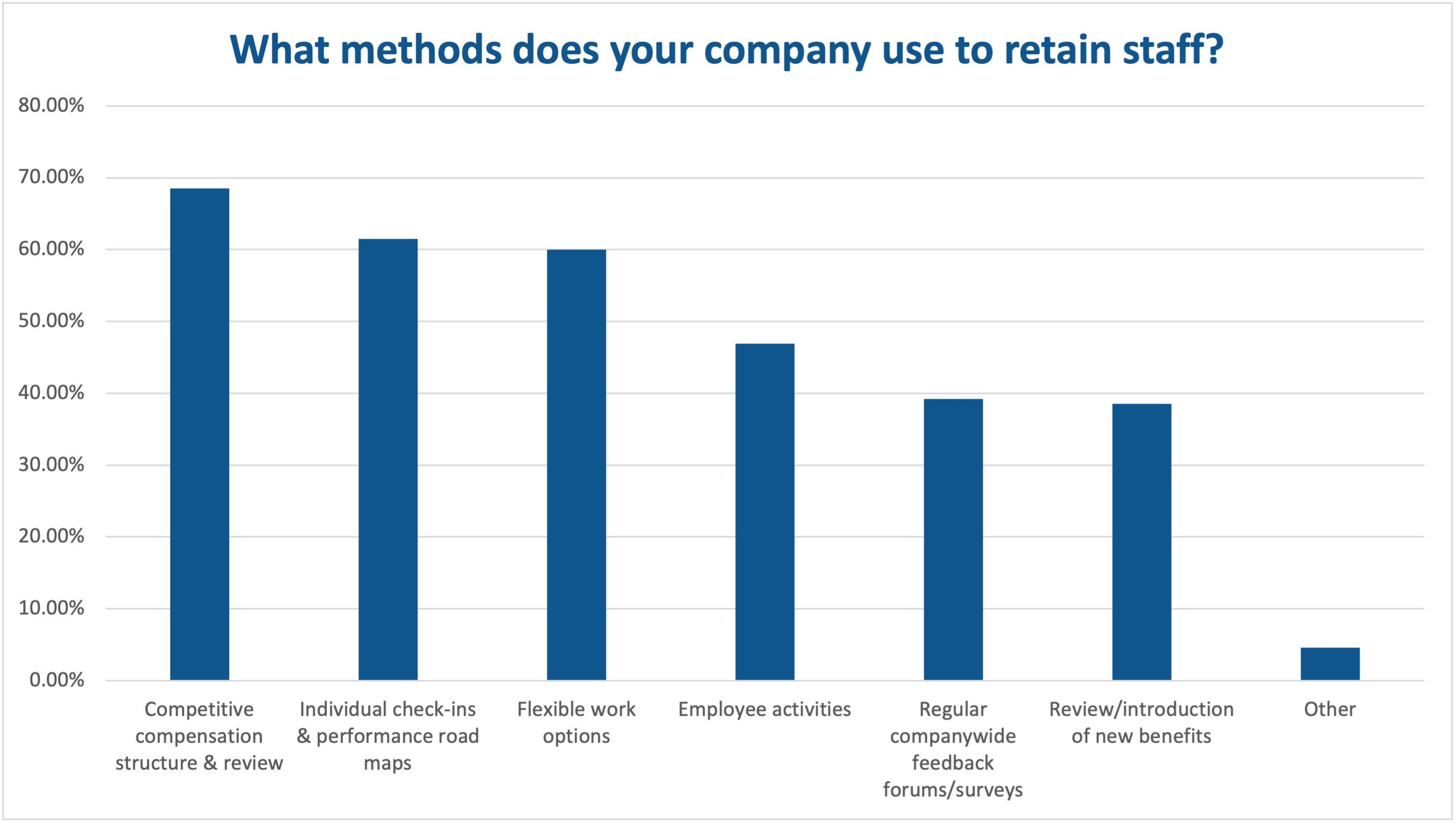 OTHER HIRING TREND INSIGHTS
OTHER HIRING TREND INSIGHTS 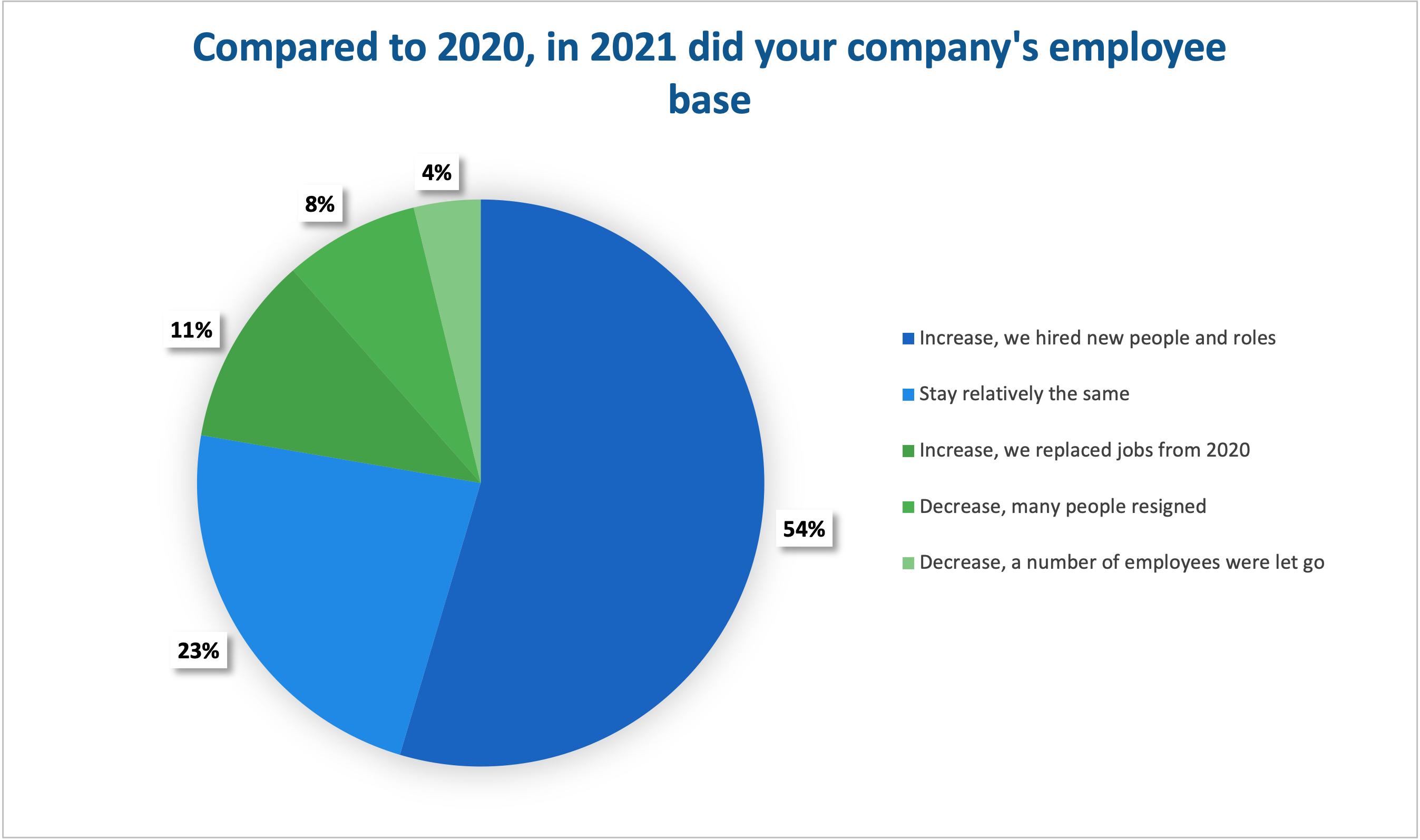
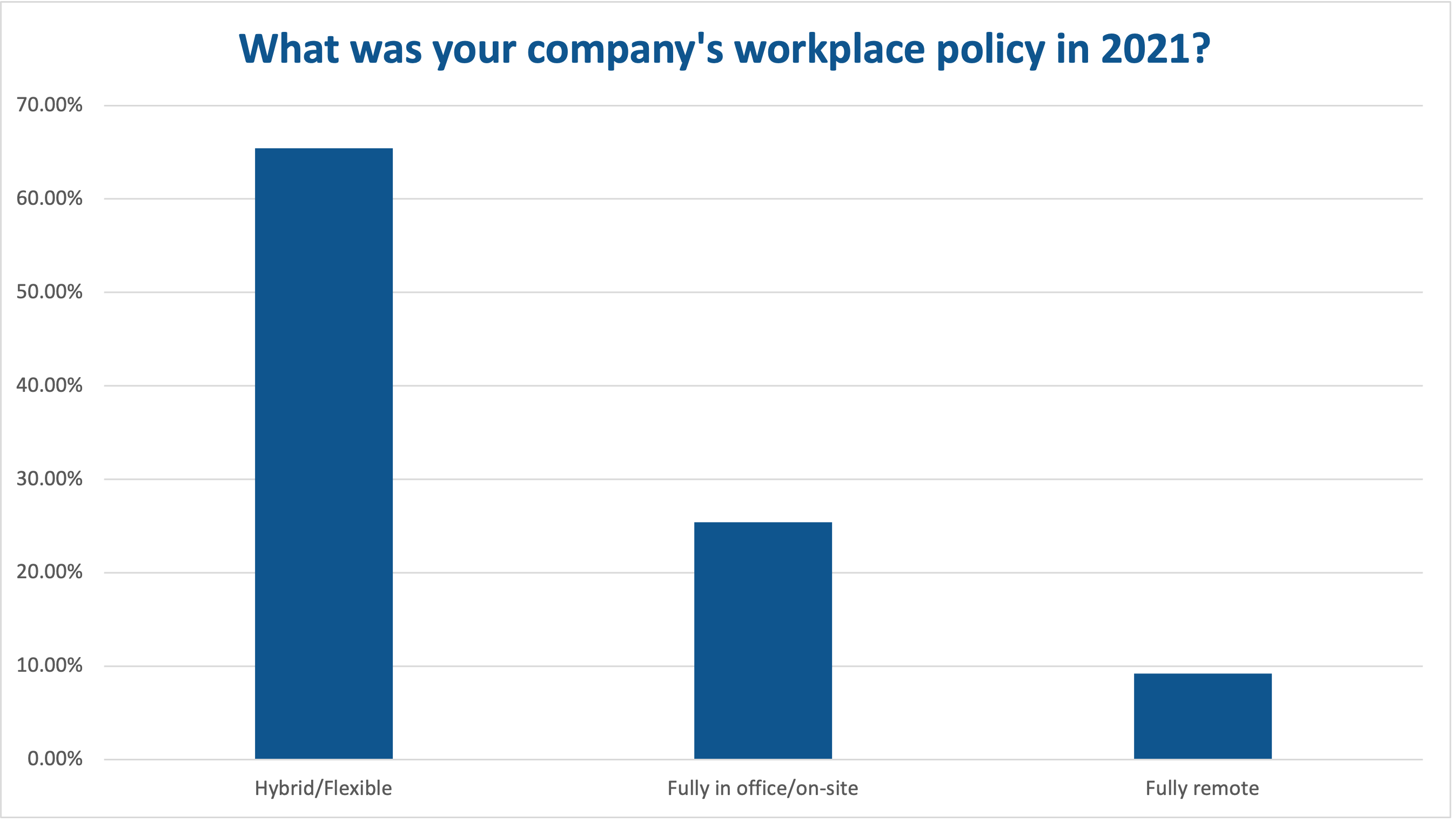
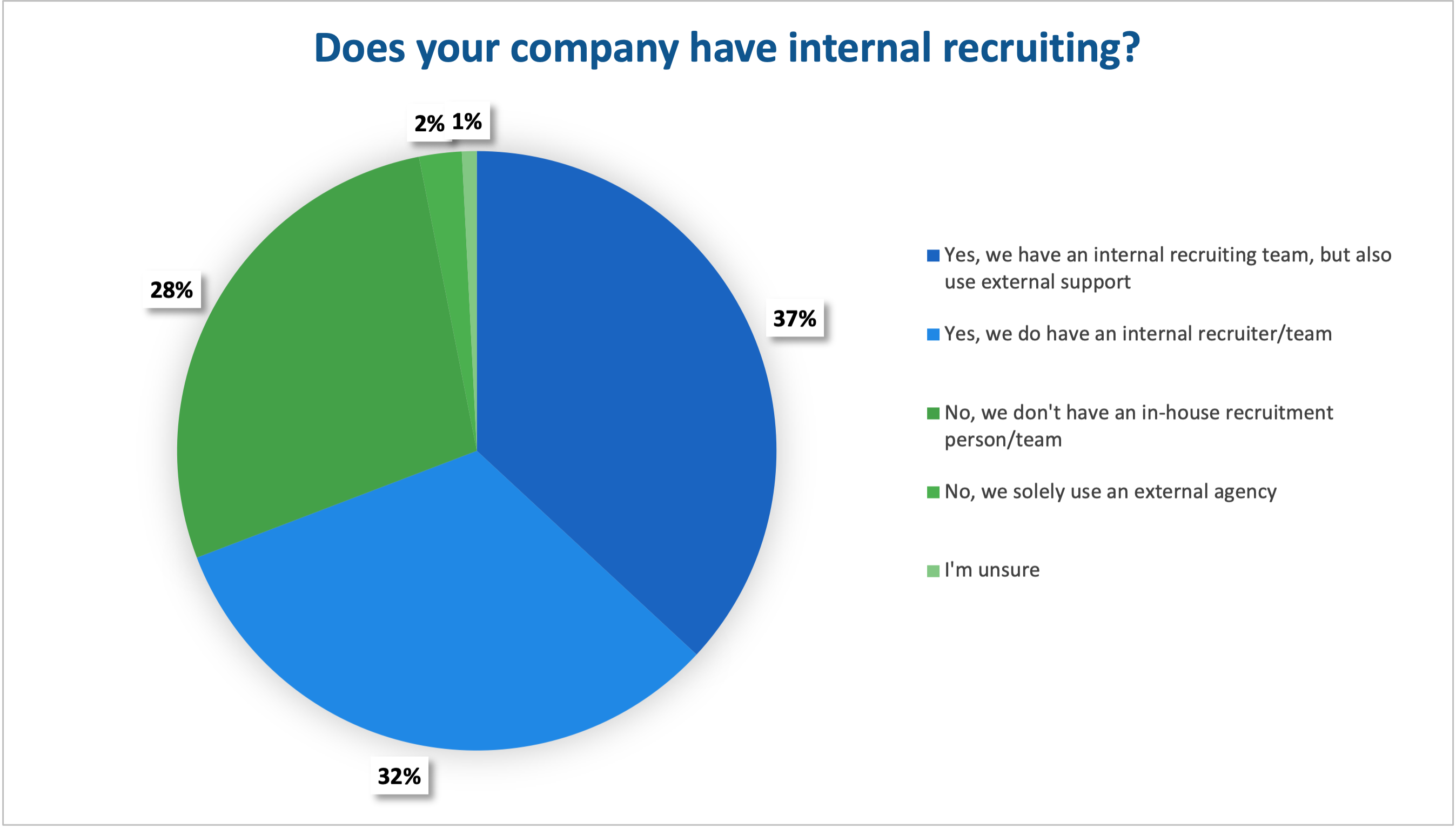
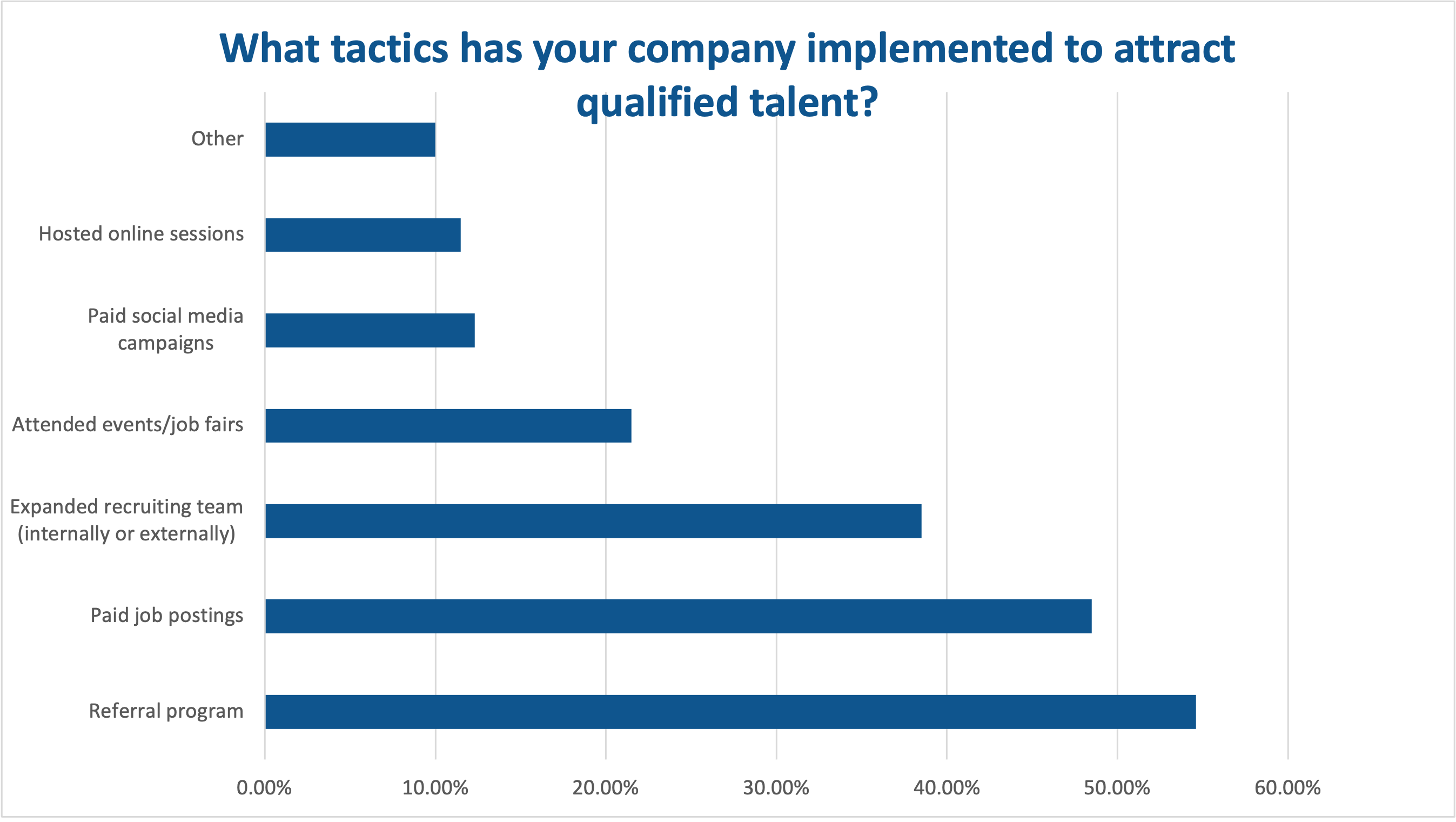
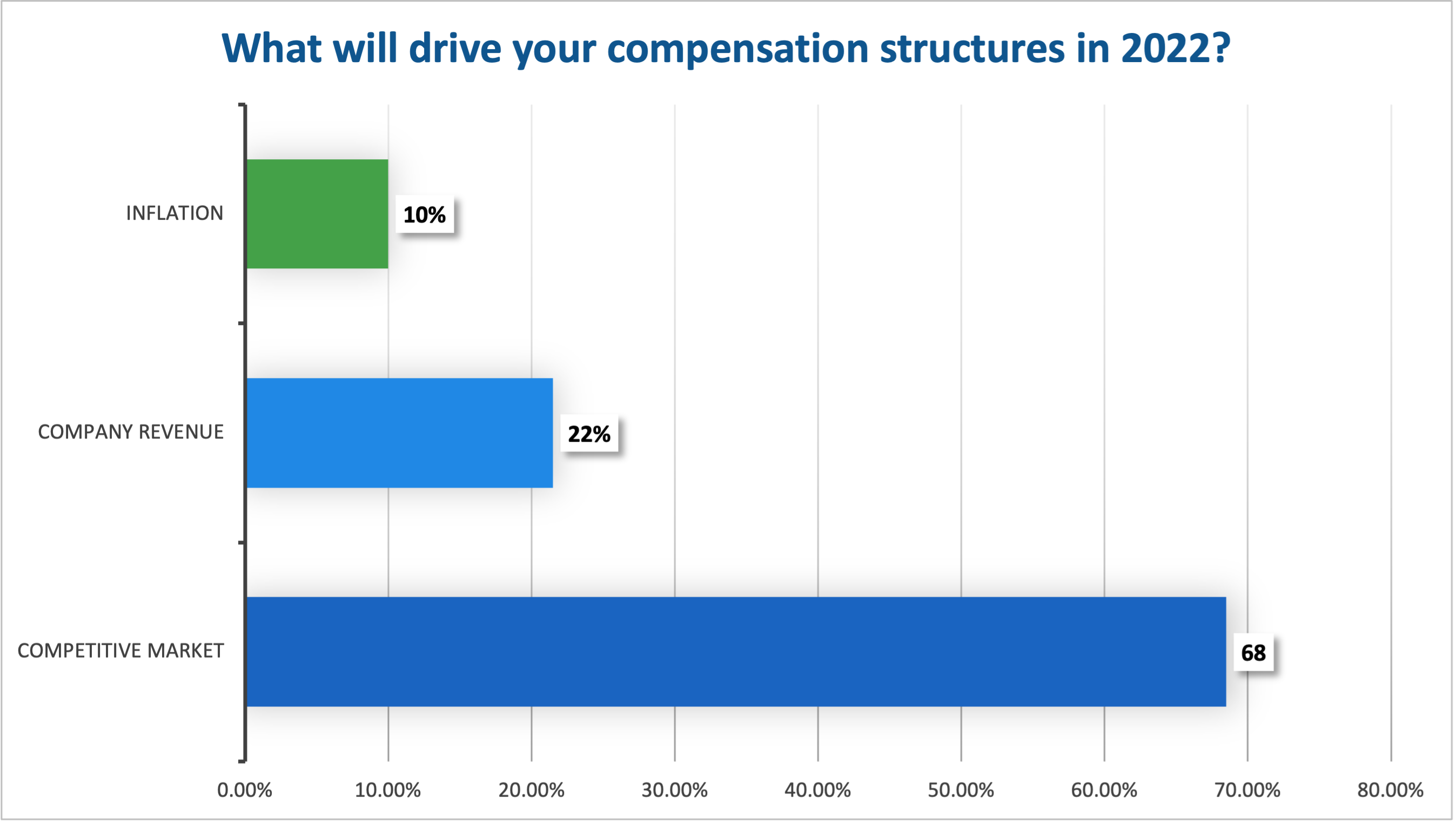
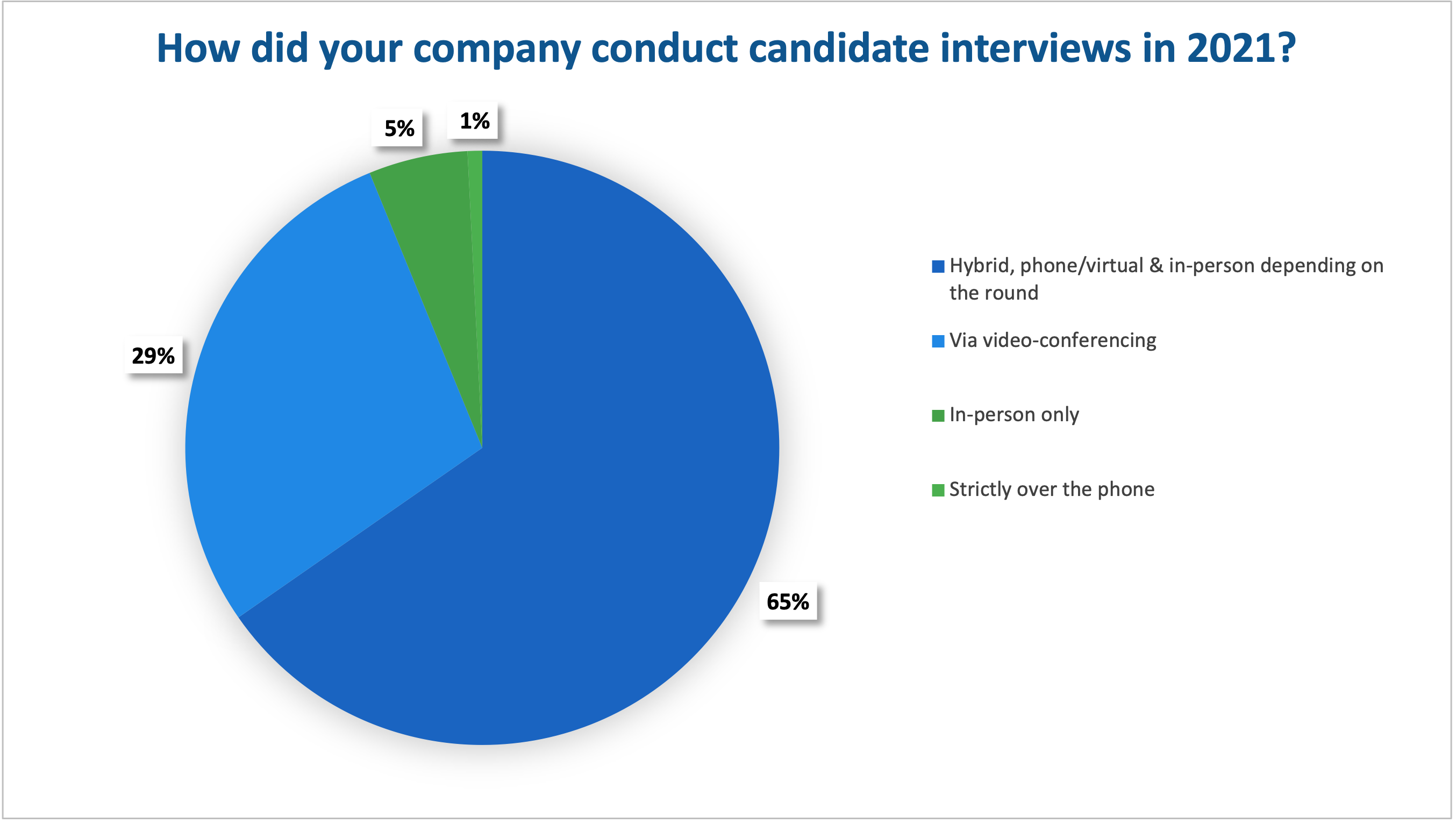
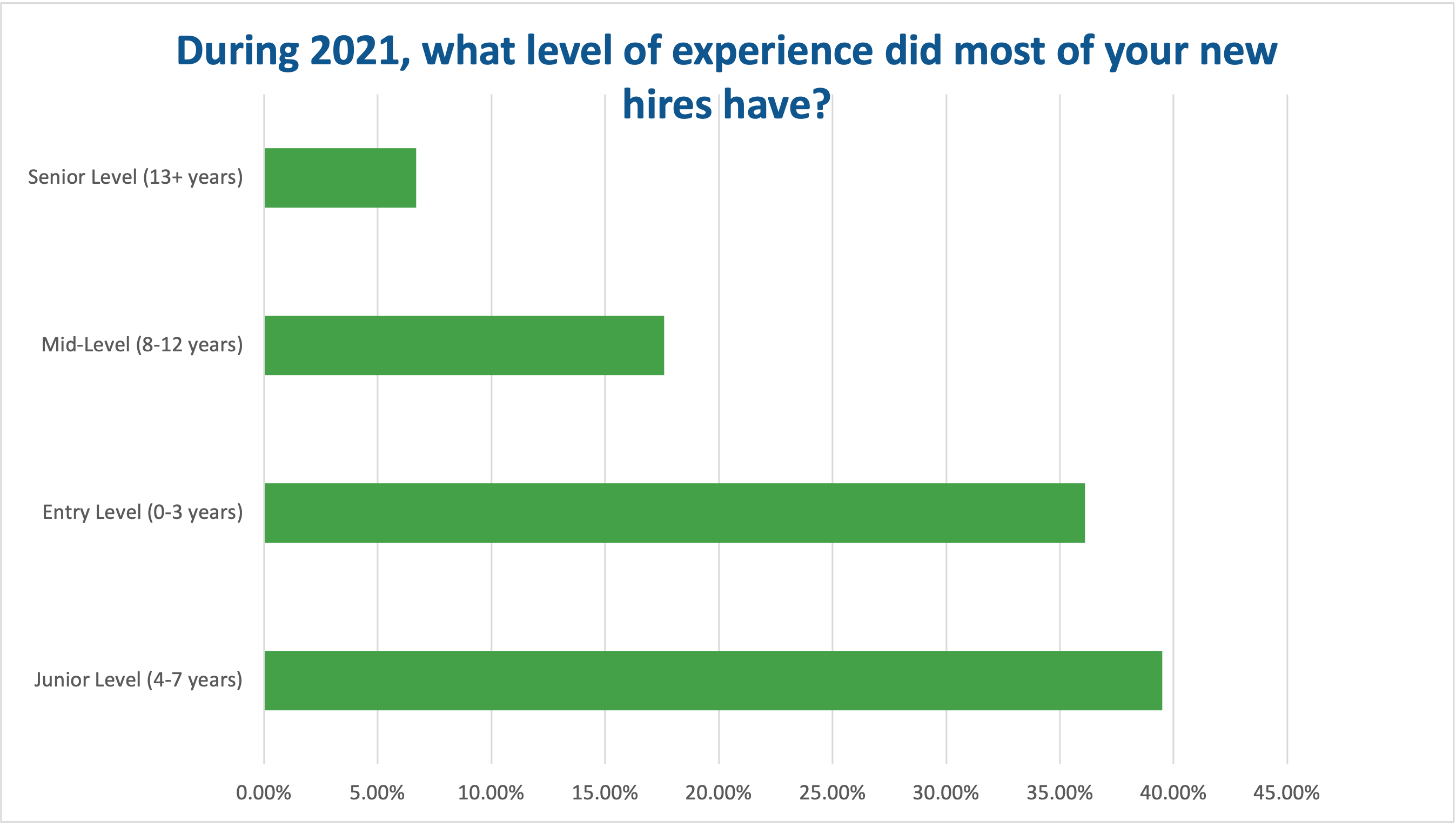
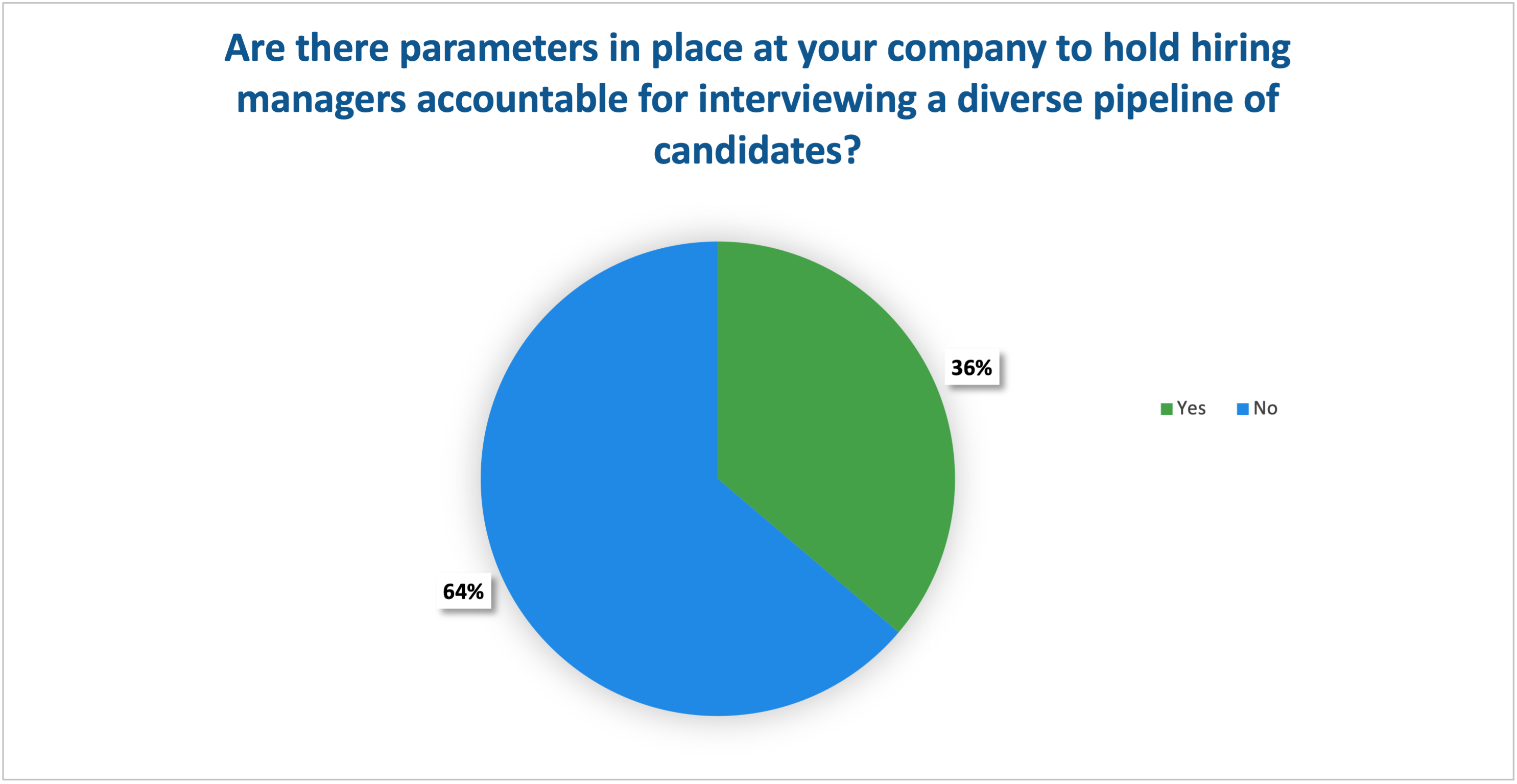
Written by Pattrick Sisson















